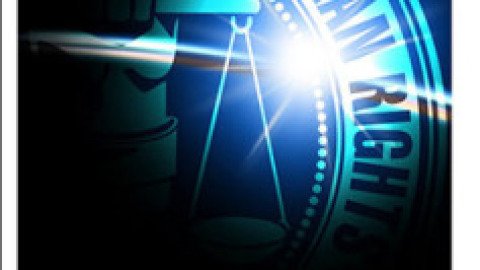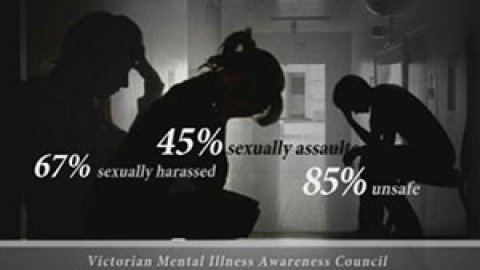Quackery and woo are among the favourite insults directed at anyone who practices most forms of CAM (Complementary and Alternative Medicine) – and especially those who use of homeopathy, herbs or vitamins – by staunch and vocal supporters of evidence based medicine.
However a feature in the Daily Mail today describes a class of drugs that are being offered to millions with everyday emotional problems, which seems to fulfil all the requirements for a diagnosis of quackery and woo.
In explaining why they attack CAM, anti-quackery hunters claim that they are protecting consumers. Despite its apparent harmlessness, they say, CAM can be deadly for three reasons. Firstly there is no good evidence – properly conducted randomised trials – that any of it works.
Secondly even if the treatment is relatively harmless, by fooling sick and vulnerable people into using them, practitioners are keeping them away from real and effective treatment, so CAM could be very damaging. Finally the way some of these treatments are supposed to work – vanishingly small doses, non-existent energy channels – are simply fantasies.
The Bitterest Pills
The Daily Mail feature is a strongly worded attack by Dr Joanna Moncrieff, a senior psychiatrist at University College London, on the growing use of heavyweight tranquillisers – known as antipsychotics – to treat people with a diagnosis of bipolar disorder. Do read the piece because she sets out her case very clearly and I’m not going to repeat it here. Her book “The Bitterest Pills: The Troubling Story of Antipsychotic Drugs” (Palgrave Macmillan) is just out.
Instead I want to highlight just how closely the use of antipsychotics fit the definition of woo and quackery. We are not talking a minor aberration here – nearly eight million prescriptions were written for these drugs last year. they were first discovered over 60 years ago and are well known to be associated with weight gain, diabetes brain shrinkage and a raised risk of heart disease.
Consequently you would hope that in a genuine evidence based system, all sorts of red flags would go up at any attempt to widen their use still further without being absolutely sure that they were used on the correct group of patients and that their benefits outweighed their considerable and well known risks.
So to the first issue: What’s the evidence that antipsychotics are a safe and effective treatment for bipolar disorder? That depends on how you define bipolar but you need to swallow a lot of woo to believe that the trials show anything of the sort when the new definition is used
A disorder serious and rare
A couple of decades ago there was a psychiatric condition known as manic depression that was sometimes referred to as bipolar disorder. It was serious, rare and sufferers were usually on a drug for life. The diagnosis was also very clear. You would suffer from repeated episodes of mania – a wild energy, frenetic and often irrational behaviour for at least a week often longer. This would be followed by a crash and often a serious depression, again for a considerable period.
However for the last decade or more an increasing number of people have been diagnosed as having what has been called bipolar 2 – a much milder form of mood swings that involve being a bit exhilarated – maybe only for a day – followed by a low, that could also be fairly brief. One of the treatments for this condition is the antipsychotic drug Zyprexa (olanzapine).
So what is the clinical trial evidence that this is safe and effective? It comes from just one trial run by the makers of the drug – Ely Lilly – that involved patients who had had the serious form of bipolar disorder for years and so had been taking some sort of powerful drug for years. This presented a problem – who to put in the placebo group?
The brutal solution, Dr Moncrieff revealed, was to take a number of patients off their drugs and compare their state with those getting the different drug. So the drug was licensed on the basis that it was better than going cold turkey with mania!
Benefiting from superior woo
But this didn’t seem to trouble the regulators – if they even spotted what had happened. On the basis of that one trial Zyprexa was licensed for bipolar disorder, a definition that had benefited from superior woo to expand almost indefinitely.
What about the second quackery marker – stopping people getting proper treatment? As we’ve seen there hasn’t actually been a trial showing that antipsychotics help patients with the mild form of mania and we know that that Zyprexa comes with a heavy burden of side effects.
So putting patients with milder bipolar on an antipsychotic cuts the chances they will get a treatment that is appropriate to their situation. This could be some form of cognitive behavioural therapy, which has good evidence for effectiveness in emotional disorders and has virtually no risk of side-effects. Tick for quackery marker two.
And pure speculation, unsupported by evidence, can be found in the two part theory about what the drug is doing:
A) That Zyprexa can rebalance the chemicals in the brain that are behind manic episodes and make them less likely to reoccur. It has never been show that this is what actually happens. A more plausible explanation, says Moncrieff , is that the drug acts in much the same way was alcohol or barbiturates, damping down mental activity.
B) That the brain chemical disorder that underlies mania is the same one that is driving the milder form of bipolar disorder and that giving the drug will correct it too. Three strikes for Zyprexa.
Quack treatments are certainly worth investigating, but the hunters wearing the evidence based medicine livery seem curiously deaf to this particularly giant example of the species. So a loud quack for antipsychotics as they join the wall of evidence-free fame along with barbiturates, and the cholesterol lowering drug ezetimibe.

















